| Pages:
1
2
3
4 |
David K
Honored Nomad
        
Posts: 65453
Registered: 8-30-2002
Location: San Diego County
Member Is Offline
Mood: Have Baja Fever
|
|
Mission History Sources: Fact or Fiction?
One of my motivations for co-authoring 'The Old Missions of Baja & Alta California', back in 2012, was to have a handy guide with the basic facts
of all the California missions, instead of spending hours of library research or collecting enough books to fill in the gaps. The Alta California
mission documents were well protected, the Baja mission papers not nearly so... Details are out there, but often scattered in many places. Having more
than one source of data helps confirm facts or to fix honest errors made by newer authors.
By double checking between authors, or the priests' own letters, one can find the truth about the past. Some ancient documents were discovered in
recent years which has changed what we learned before. More will be discovered in the future, and the information we have now will be updated or
changed.
The sources I have are in three groups:
1) The actual letters and reports made by the missionaries (translated into English from Spanish, Italian, Latin or German)
2) Books from the 1800's or early 1900's with details or quoted texts from the missionaries.
3) Books from the mid 1900's to early 2000's about the missions or Baja California.
From all the above, I get the data from which I write about the missions...
Here is what I have used to gather the data:
Group 1)
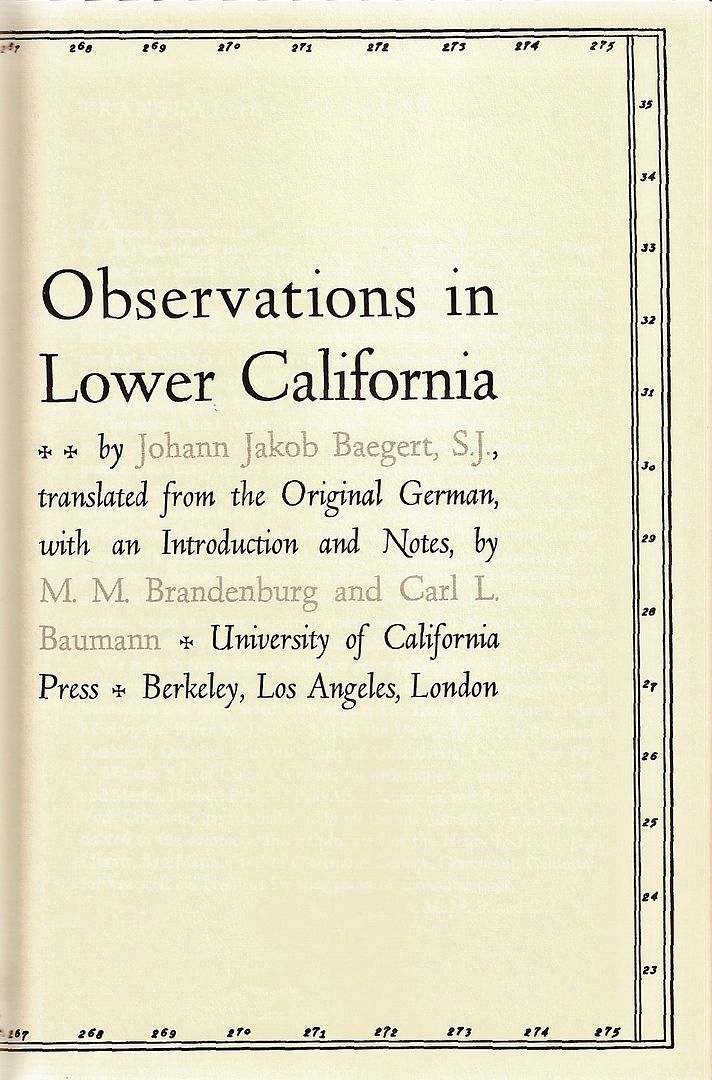
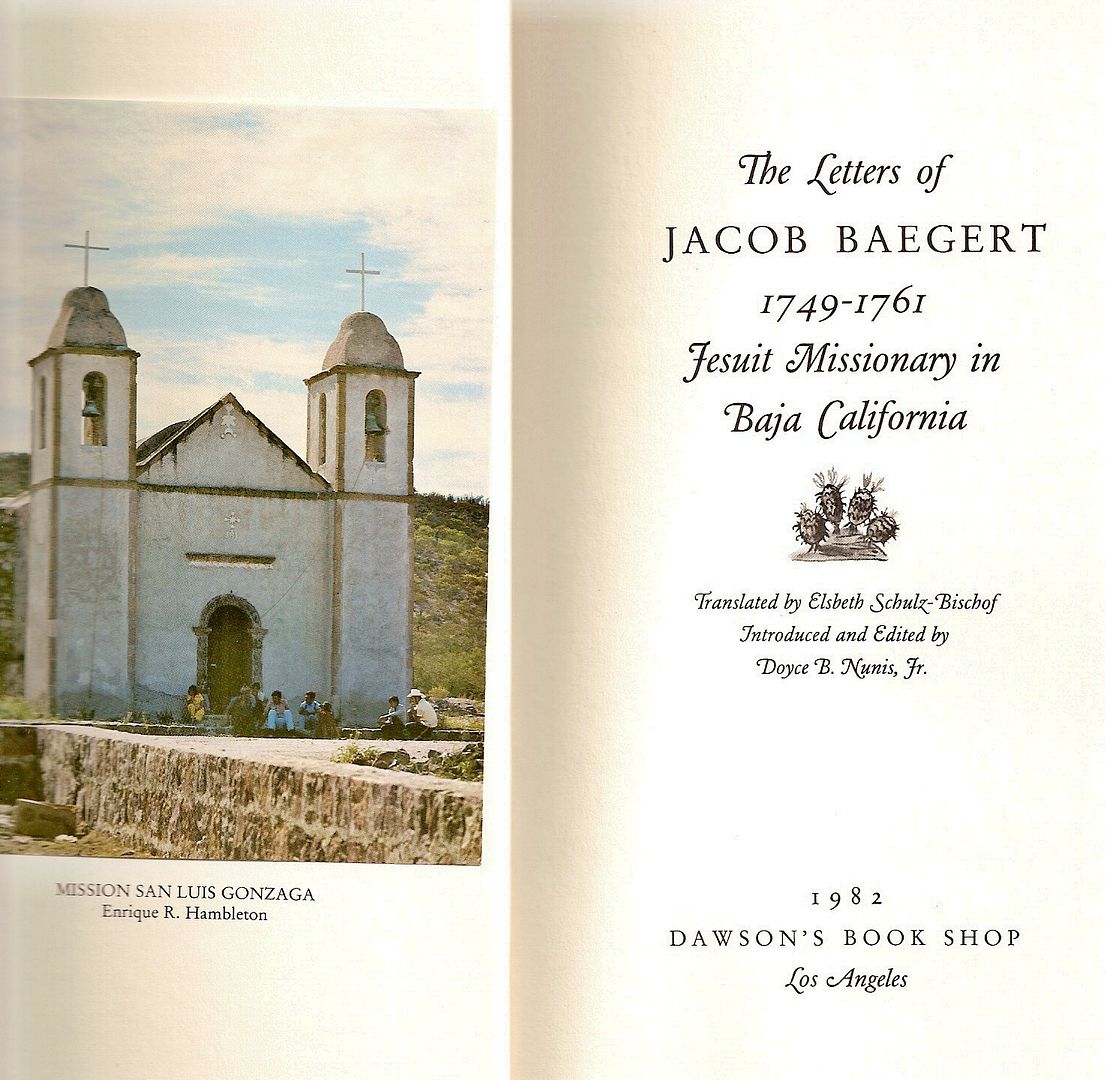
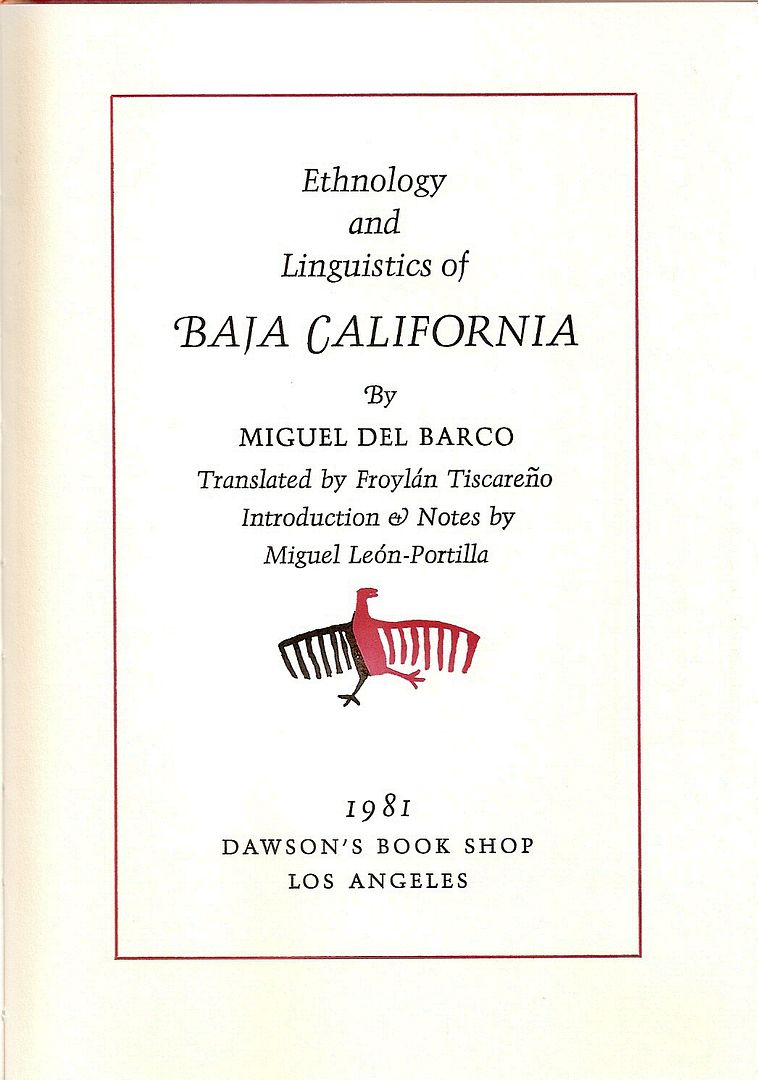
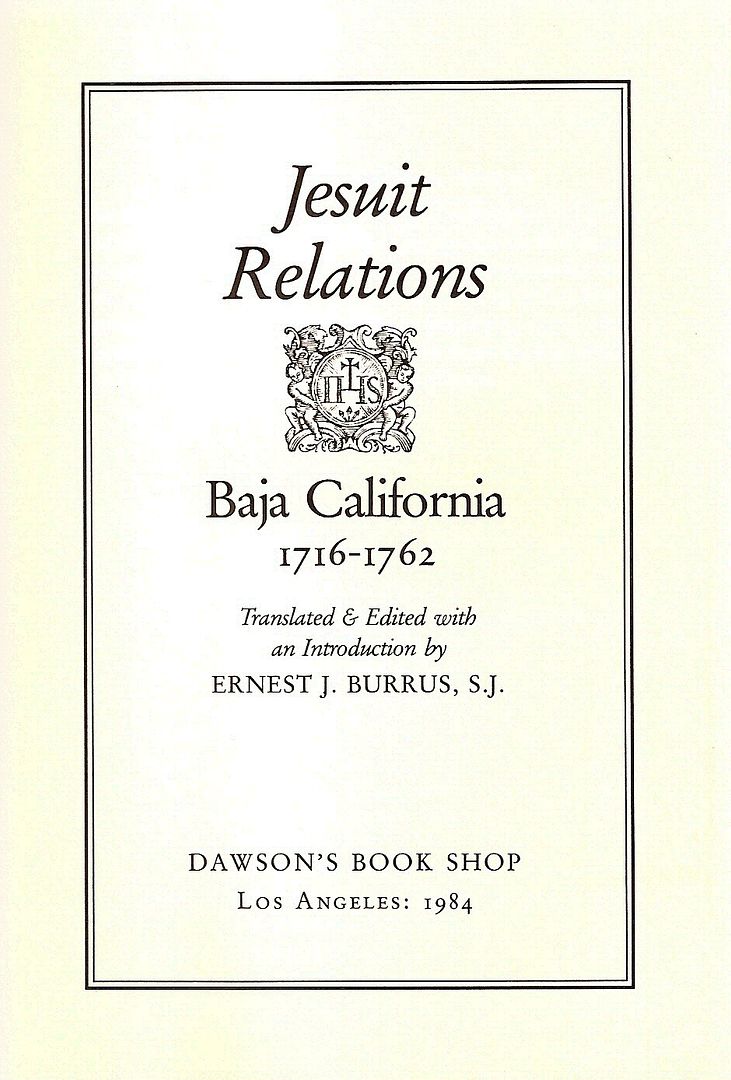
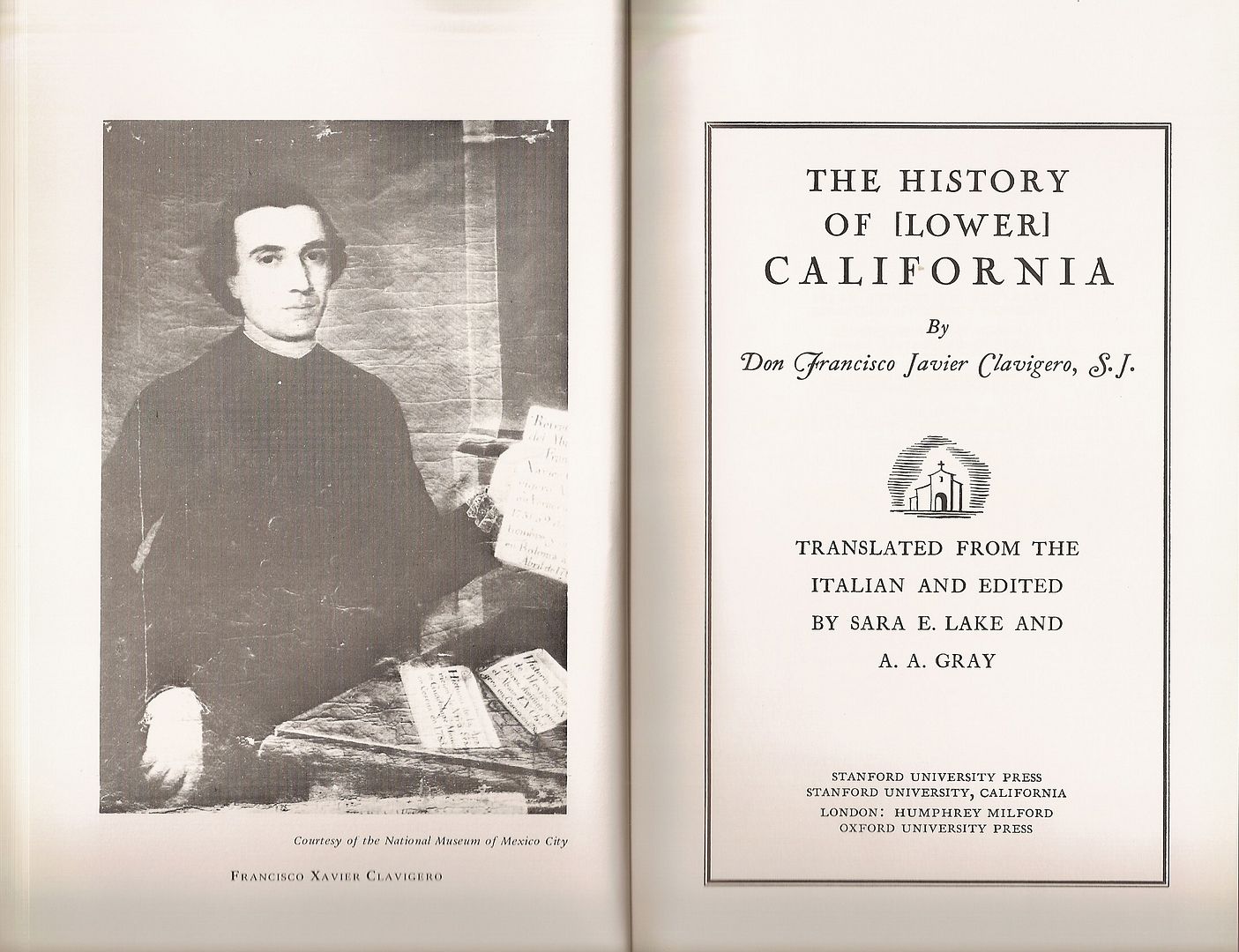
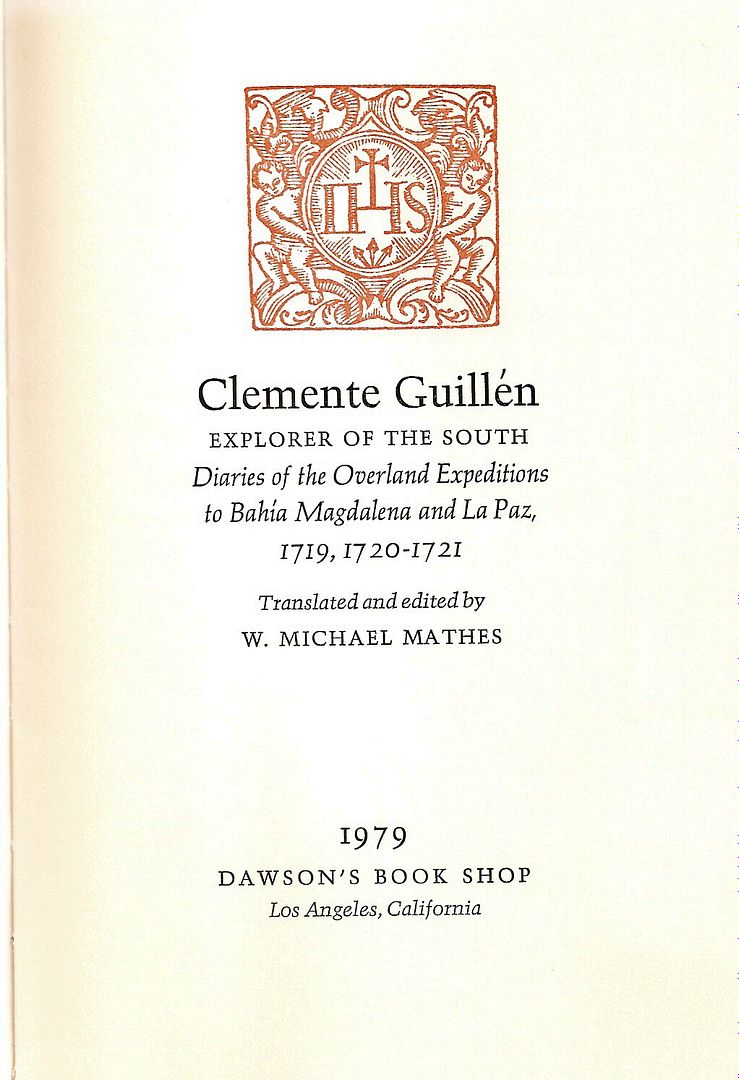


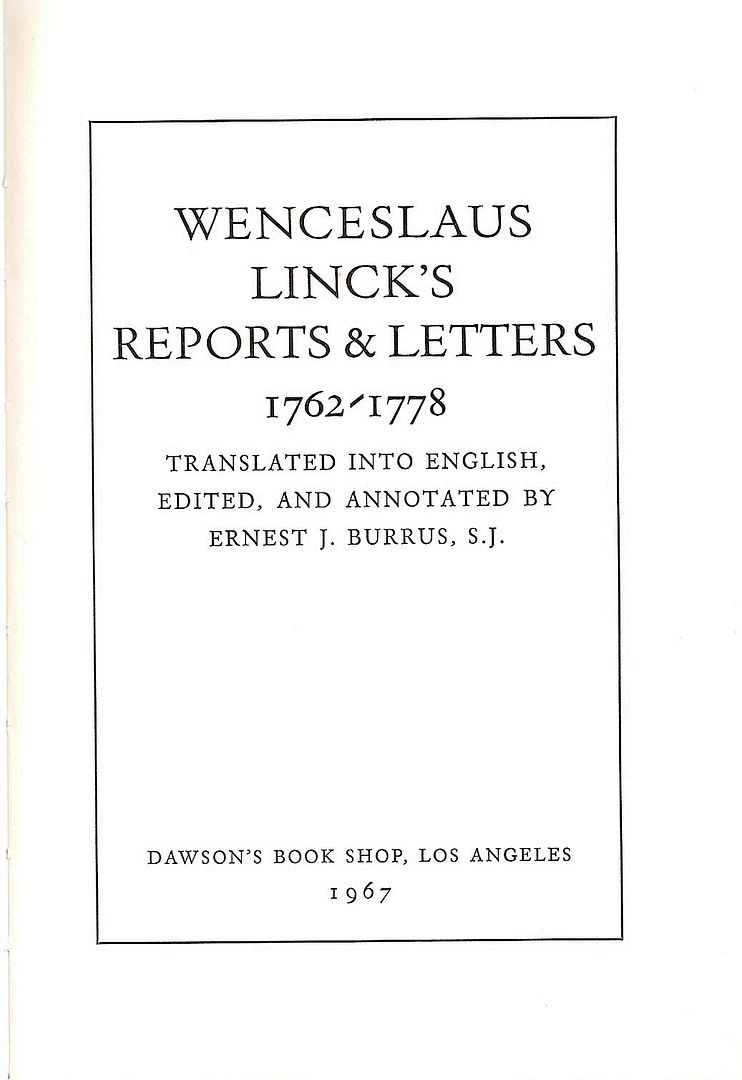
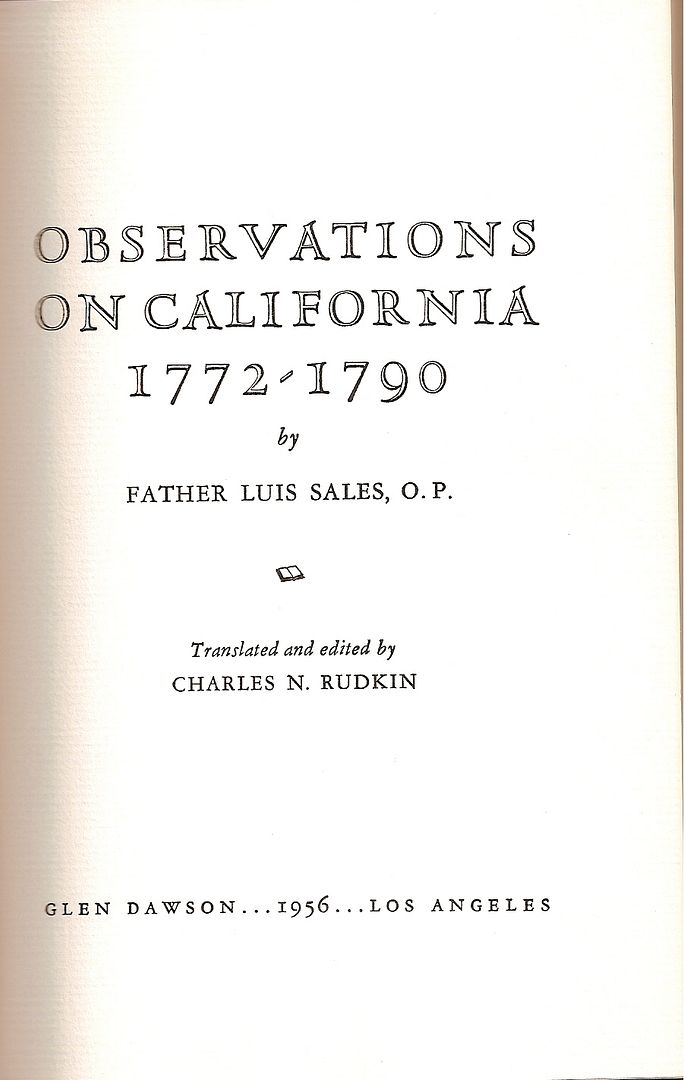
Group 2)
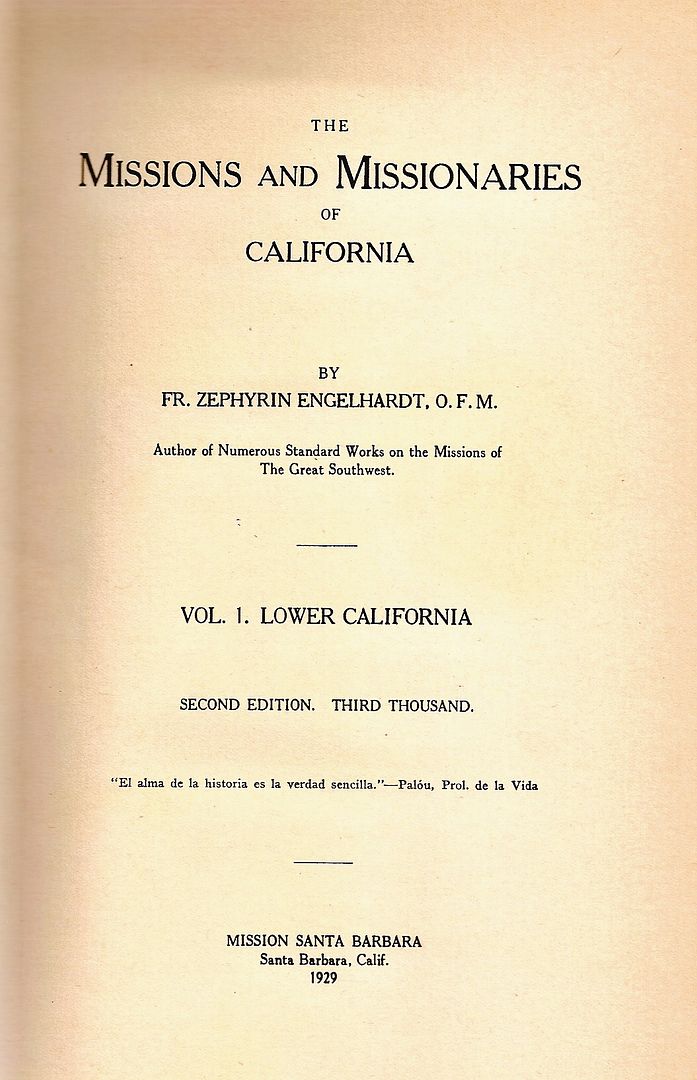
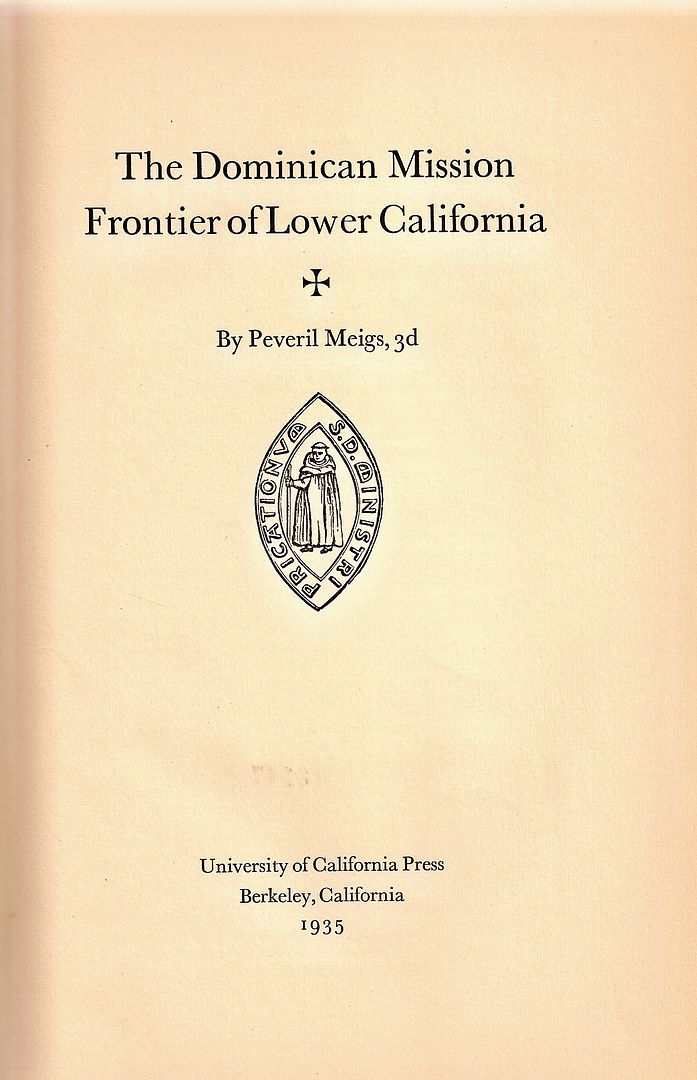
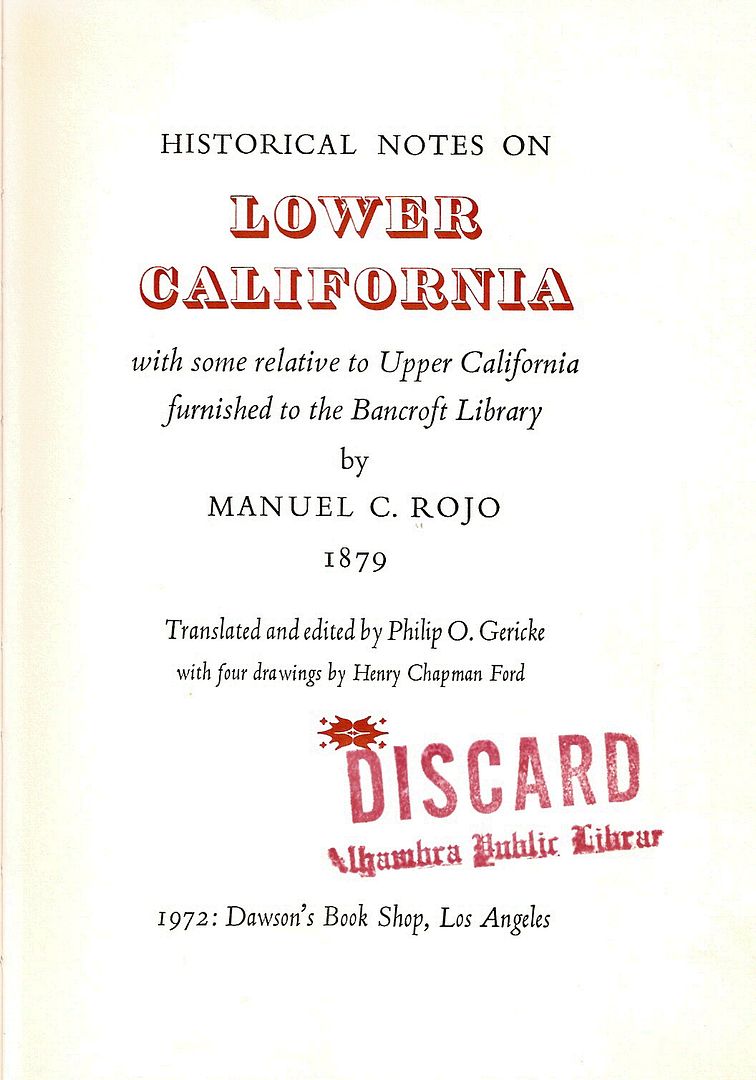
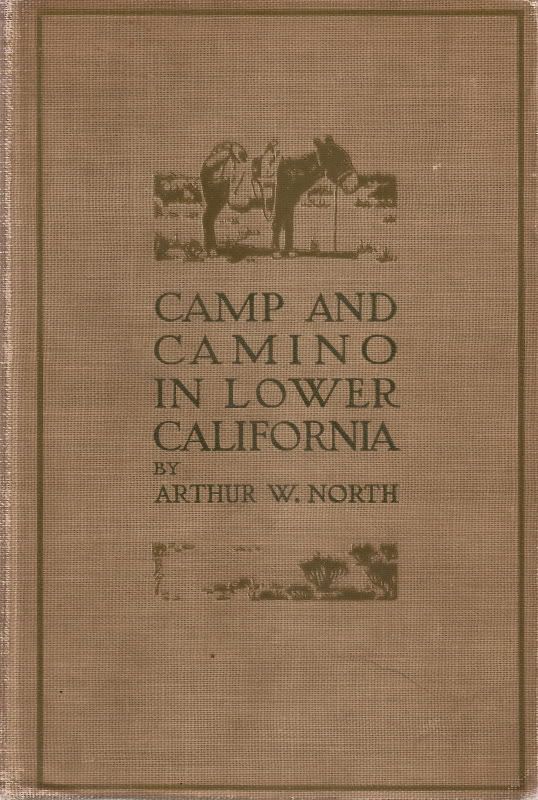
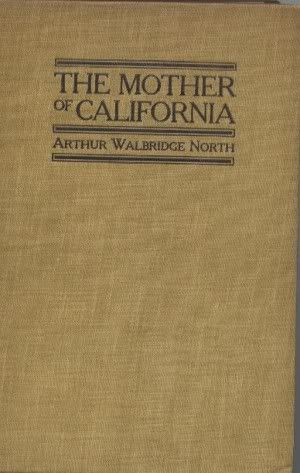
Group 3)
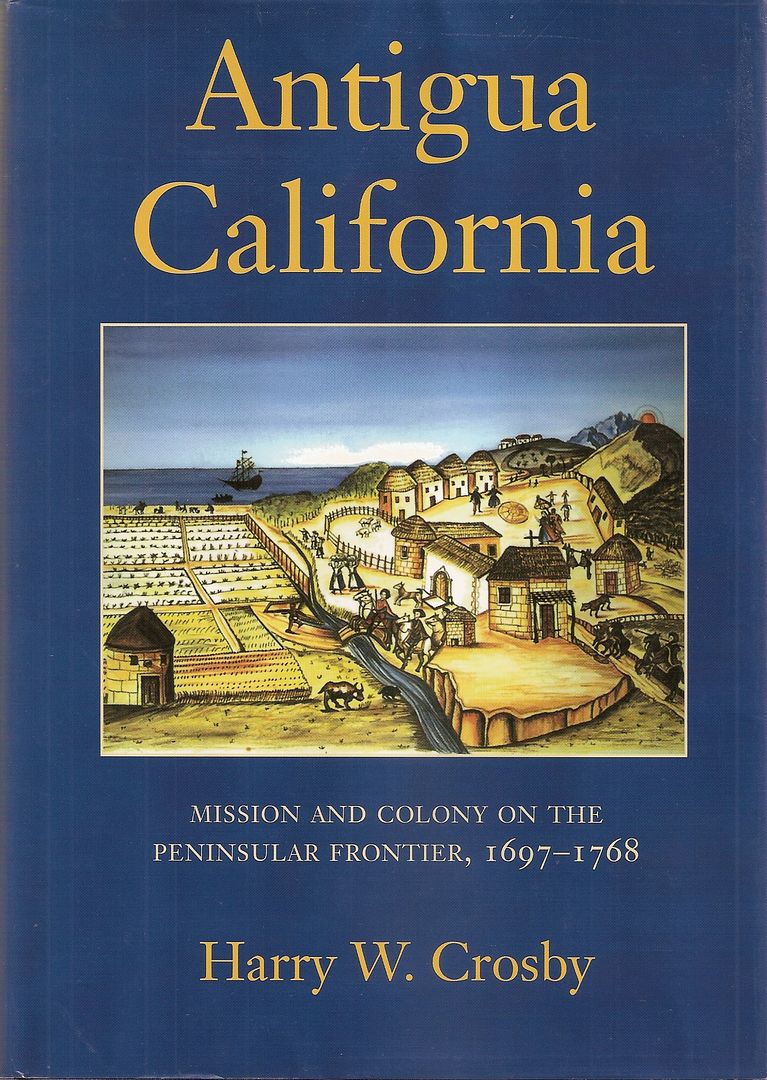
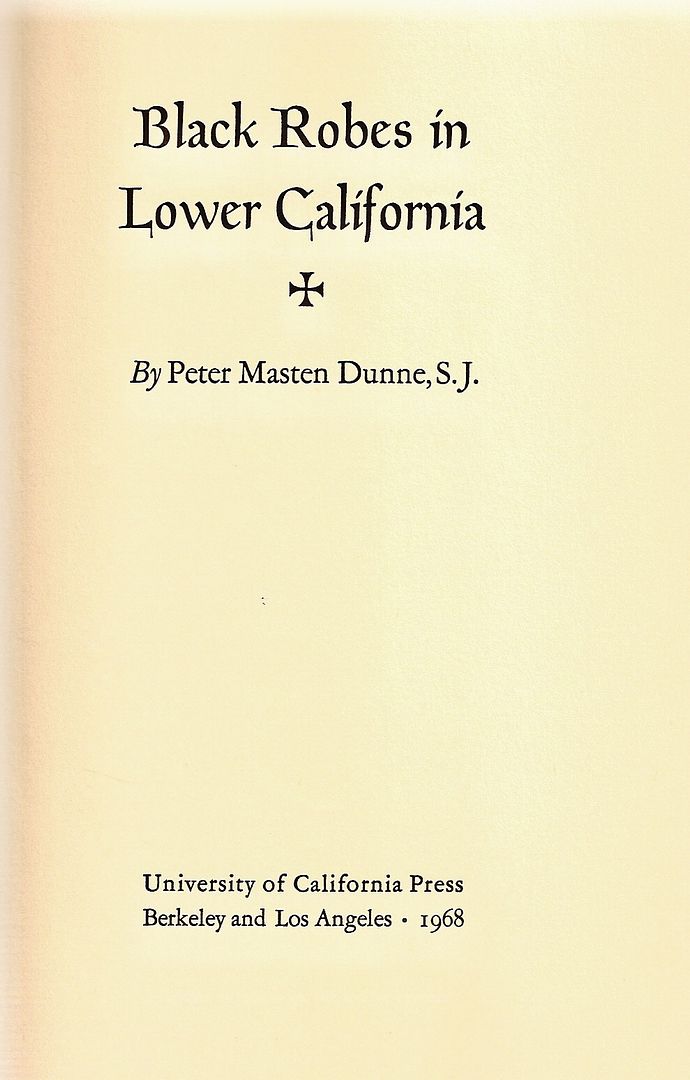
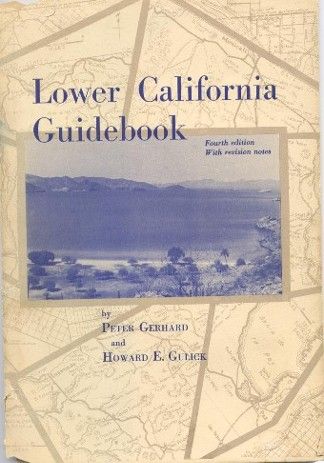
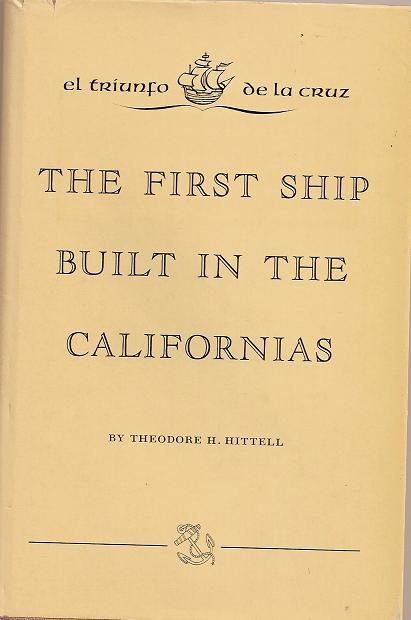

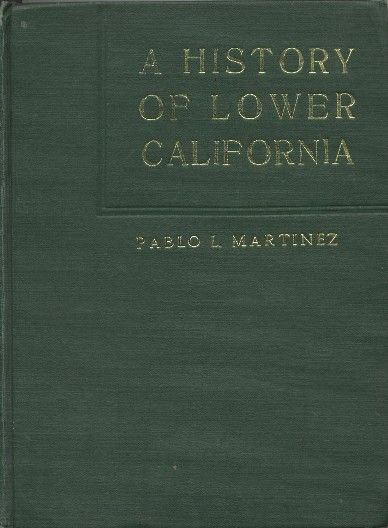
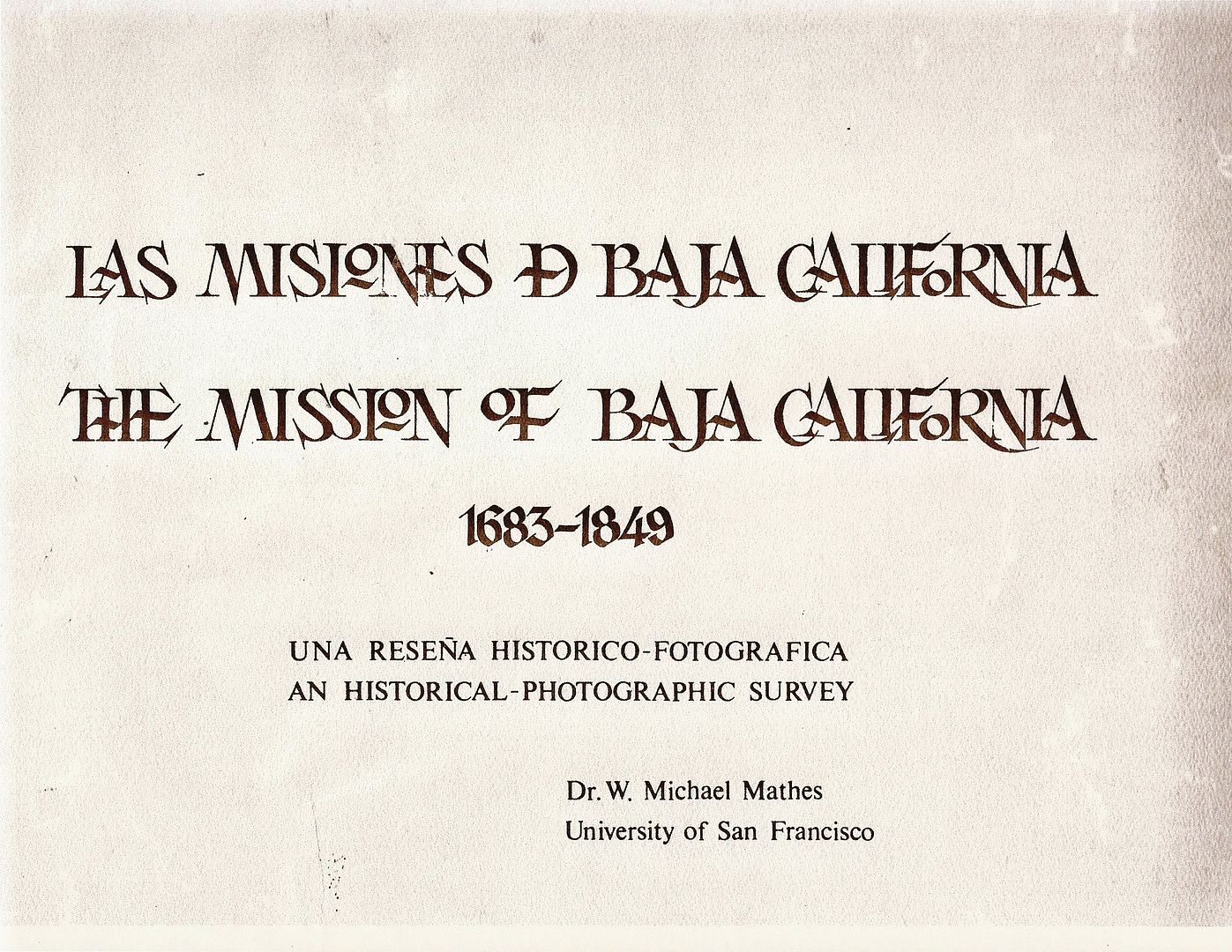
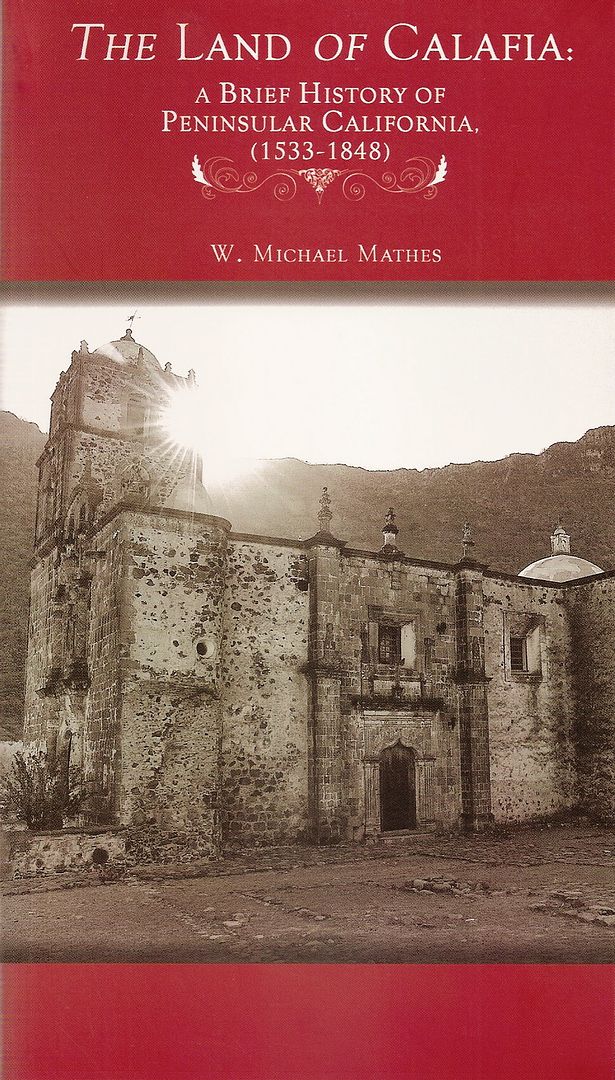
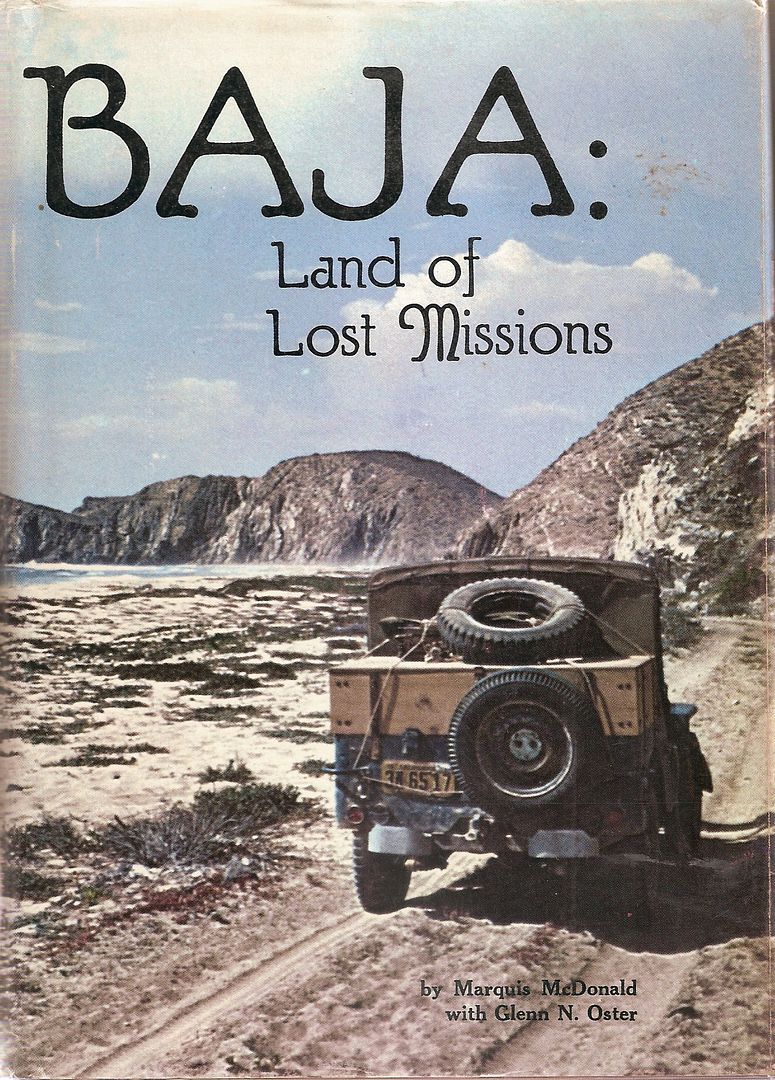
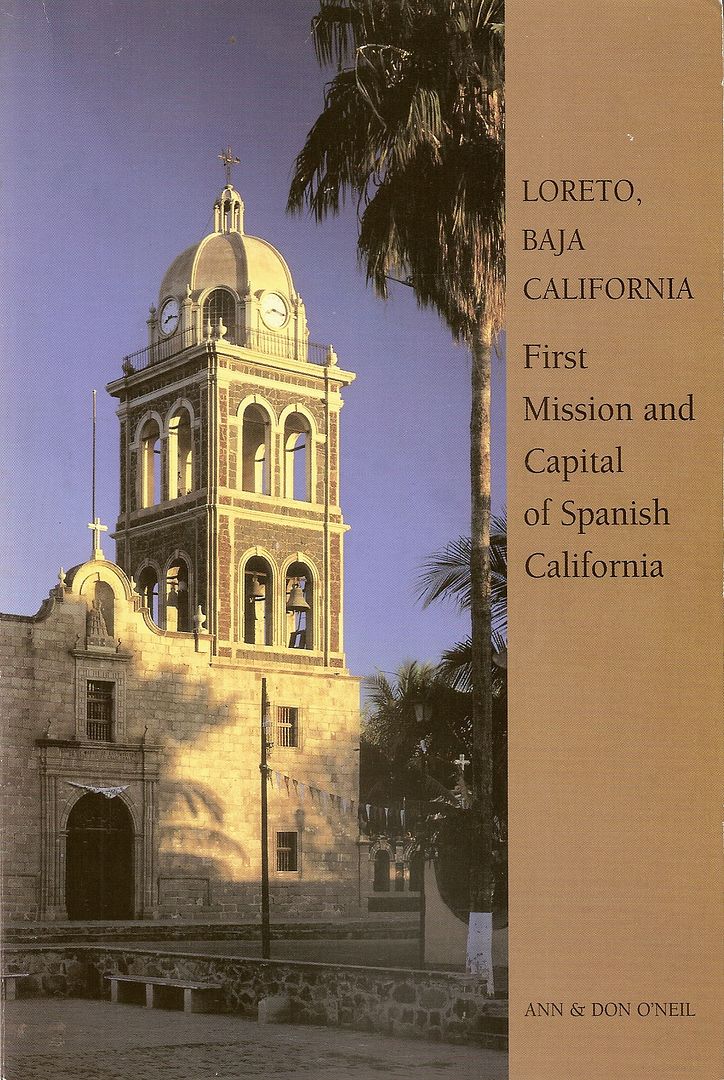
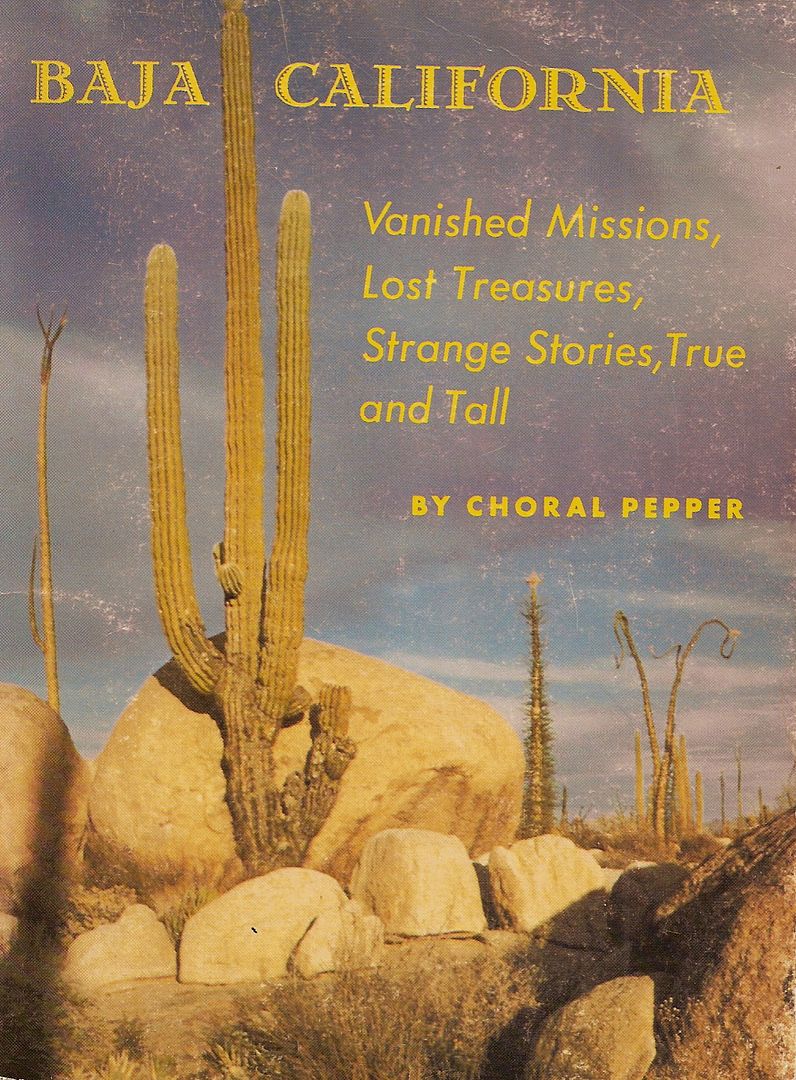
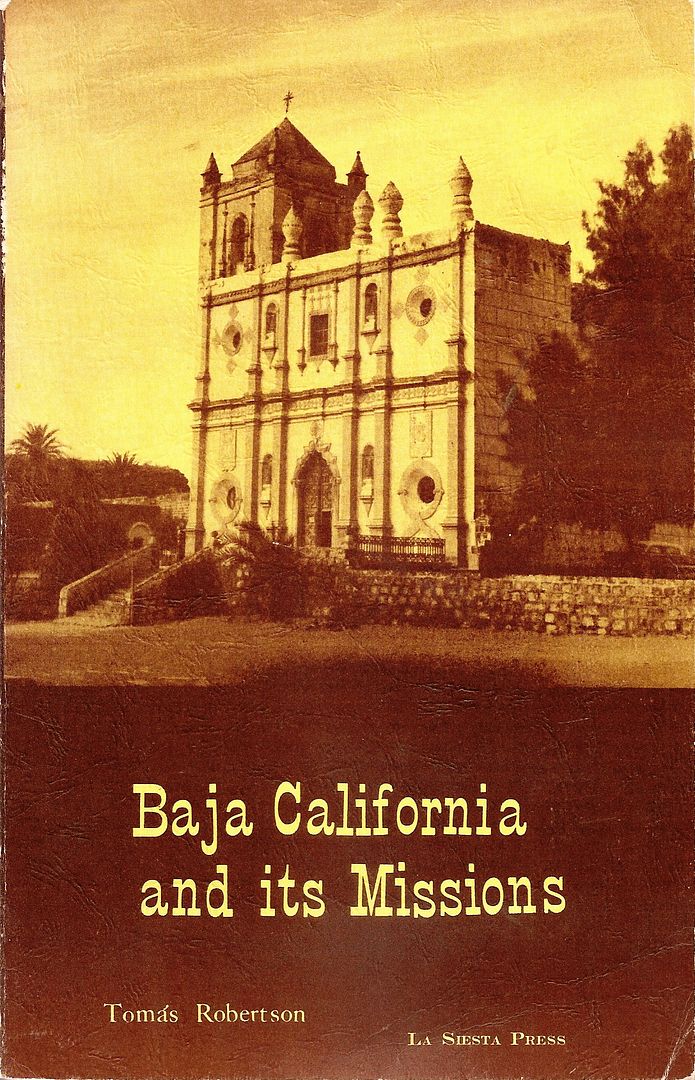
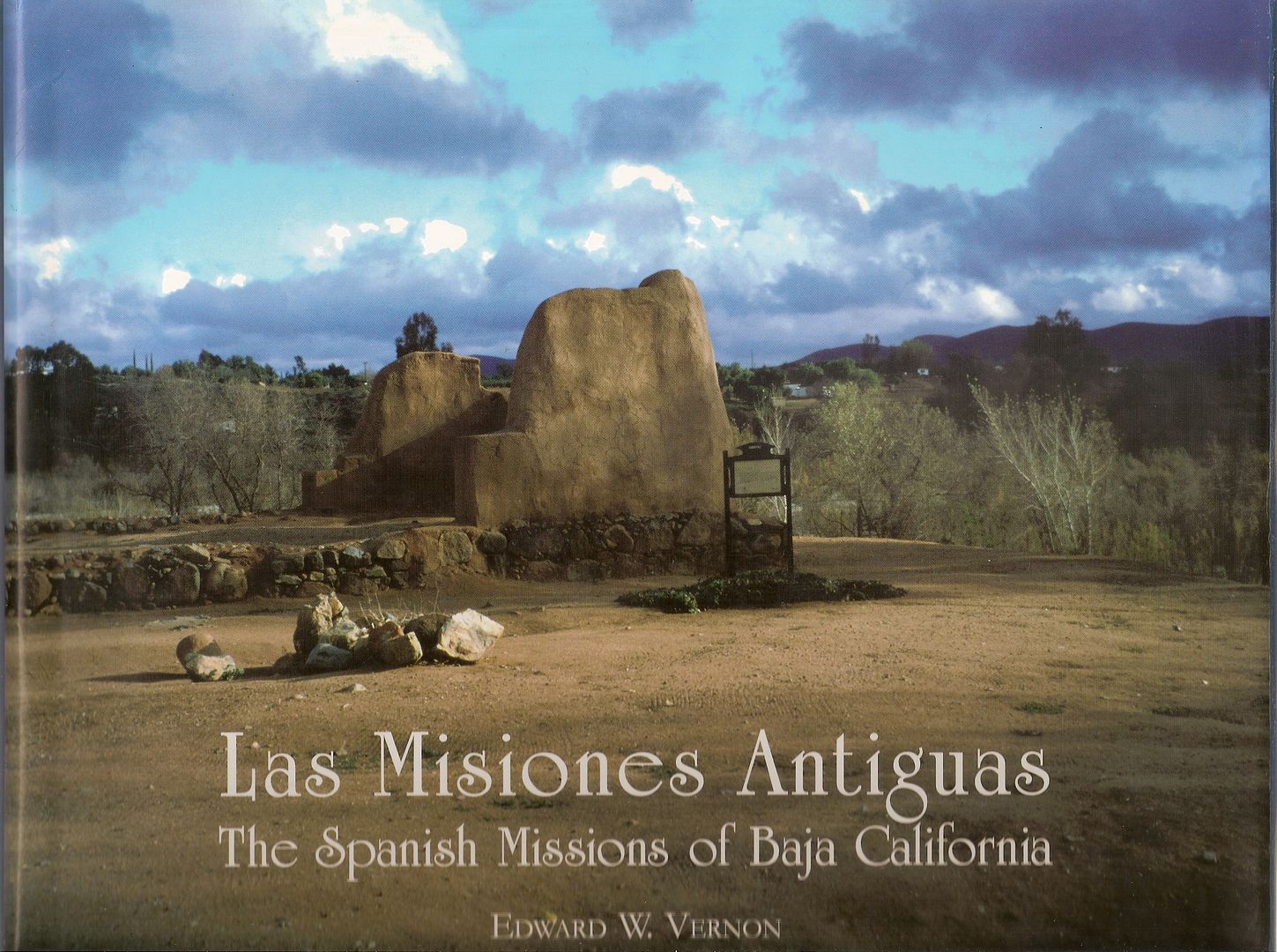
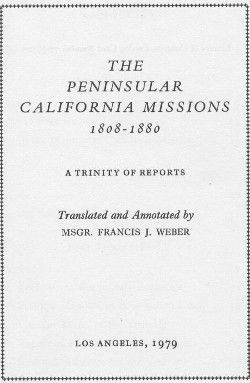
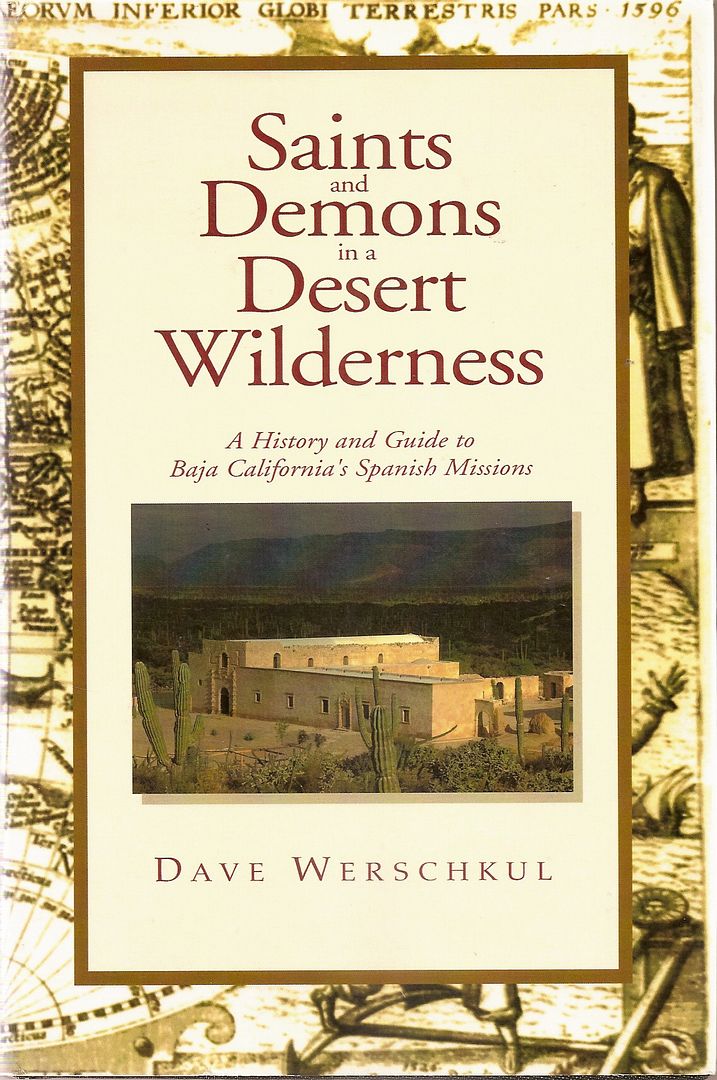
ADDED, from 1959 and reprinted in 1967:
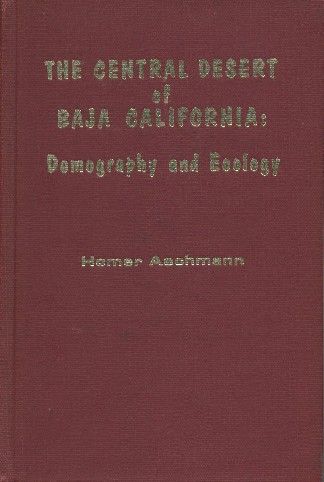
That (I think) is most of them... It is a great joy to go back in time and try and imaging what happened and how.
To provide more detail on the Baja missions than what is in our book, I have started writing a series on the missions that appears in the Discover
Baja Travel Club Blog and Newsletter:
Introduction to the missions
Chart of all 48 California Missions
1) Loreto
2) San Javier
3) Ligui/Malibat
4) Santa Rosalia de Mulege
5) San José de Comondú
6) La Purísima
7) Pilar de la Paz (La Paz & Todos Santos)
[Edited on 12-23-2013 by David K]
|
|
|
DianaT
Select Nomad
      
Posts: 10020
Registered: 12-17-2004
Member Is Offline
|
|
All of what you have listed are someone else's interpretation of primary and secondary sources. The best historians use primary sources, but even
that will reflect bias. There is certainly nothing wrong with putting together information from these books, as long as one is aware that ALL written
history reflects the author's belief system and time in which the history was written. Even translated primary sources reflect bias as often much is
lost in the translation.
History is about 5% facts and 95% interpretation. Facts usually include things like dates, location, who won a battle, building materials, and other
tangible things. But the heart of what something like the Mission system was, is a matter of interpretation, bias, and not fact. And no matter
how many books one reads, that will not change. It is like reading about the American War of Independence, or the American Revolution, or the
Rebellion of the Colonies.
And if you make money from your efforts, good for you. Most people touring places like the missions are really only interested in that 5% of tangible
facts.
[Edited on 11-9-2013 by DianaT]
|
|
|
David K
Honored Nomad
        
Posts: 65453
Registered: 8-30-2002
Location: San Diego County
Member Is Offline
Mood: Have Baja Fever
|
|
Since we were not alive when the missions were operated, we have no choice. The best source of what happened back then is to read what people alive at
the time wrote... next would be to read the earliest interpretations, but to compare them all and use logic and common sense to derive the facts.
Without a time machine, there is no better way. Most of the books published by Dawson are fantastic sources. Modern scholars and writers do the best
they can. People like Harry Crosby traveled to the archives and read the untranslated works. Some like Engelhardt had bias and it comes out clearly in
their writing.
What I do is to keep the interest and history alive... not allow it to die or disappear into mystery and confusion. The articles I am writing for
Discover Baja are free, for everyone. The book I co-authored with two others is also out of love for history and accuracy. It is no Harry Potter, and
nobody makes money on it, we are happy to just use the income to pay for more books and have it translated into Spanish, so the people of Baja also
have a more complete story with correct info on the missions.
|
|
|
DianaT
Select Nomad
      
Posts: 10020
Registered: 12-17-2004
Member Is Offline
|
|
DK either someone "gets it" or they don't, and you don't and probably never will. Ni modo
Good luck with the book.
|
|
|
David K
Honored Nomad
        
Posts: 65453
Registered: 8-30-2002
Location: San Diego County
Member Is Offline
Mood: Have Baja Fever
|
|
I get that some folks prefer to live in a fantasy and facts are just problems to be avoided.
Very few people have all these books, but the information they contain may have value to them... or at least some interest. When I research on a
mission's history, I go through all of the books to find the data... and if it conflicts, I make a choice based on logic and common sense. If two
stories have equal merit I will report that.
If you are not interested in the history of California during these years, that is fine... I am writing for the people who do want to know what
happened, according to those that were there, or the next best source.
|
|
|
vgabndo
Ultra Nomad
    
Posts: 3461
Registered: 12-8-2003
Location: Mt. Shasta, CA
Member Is Offline
Mood: Checking-off my bucket list.
|
|
David, You said...
"I go through all of the books to find the data... and if it conflicts, I make a choice based on logic and common sense. If two stories have equal
merit I will report that."
And what your reader gets is YOUR INTERPRETATION of what was reported to have happened. Your logic and your common sense do not equate with evidence.
If your primary sources conflict, I believe the history writer has an obligation to present BOTH sides of the argument and let the reader decide which
is valid. When your common sense comes into play, the reader just gets what YOU think is true
If your primary sources disagree on what happened, THERE is your story. You report both primary sources, and prove your chops by comparing and
contrasting the conflicting views accompanied by deeply researched background information. Or, you can make yourself more important and knowledgeable
than either of the people writing in the 1700's and choose for yourself which source is telling the truth. Then people who care about the history of
early California will get the facts, just as YOUR logic has decided those facts to be.
Thanks for helping me think about and recognize a couple places where I could edit my opinion out of some recent history writing I've done.
Undoubtedly, there are people who cannot afford to give the anchor of sanity even the slightest tug. Sam Harris
"The situation is far too dire for pessimism."
Bill Kauth
Carl Sagan said, "We are a way for the cosmos to know itself."
PEACE, LOVE AND FISH TACOS
|
|
|
DianaT
Select Nomad
      
Posts: 10020
Registered: 12-17-2004
Member Is Offline
|
|
| Quote: | Originally posted by vgabndo
David, You said...
"I go through all of the books to find the data... and if it conflicts, I make a choice based on logic and common sense. If two stories have equal
merit I will report that."
And what your reader gets is YOUR INTERPRETATION of what was reported to have happened. Your logic and your common sense do not equate with evidence.
If your primary sources conflict, I believe the history writer has an obligation to present BOTH sides of the argument and let the reader decide which
is valid. When your common sense comes into play, the reader just gets what YOU think is true
If your primary sources disagree on what happened, THERE is your story. You report both primary sources, and prove your chops by comparing and
contrasting the conflicting views accompanied by deeply researched background information. Or, you can make yourself more important and knowledgeable
than either of the people writing in the 1700's and choose for yourself which source is telling the truth. Then people who care about the history of
early California will get the facts, just as YOUR logic has decided those facts to be.
Thanks for helping me think about and recognize a couple places where I could edit my opinion out of some recent history writing I've done.
|
Yes, yes, yes and you will still be left with only a few tangible facts --- dates, etc. You understand. Even when you edit out obvious opinion, you
cannot totally edit out yourself.
As you know, when historians are interested in the why and the basic essence of what happened, their books are basically very long argumentative
essays with a thesis, well researched evidence, conclusions and often counter conclusions. All historians know that others faced with the same
evidence will have different conclusions, and unless they are really arrogant, they know that they cannot take themselves out of their
interpretations. It is why historians love to argue with each other; often through the writing of history books. Common sense is not a part of the
equation.
A history book based on nothing but facts would be like a Civil War history book that just listed dates and places where the battles occurred, who won
that battle (opps, even that can be questionable depending on one's definition of winning) how many troops fought, and maybe how many died. Those are
tangible facts, usually.
Tour guides are usually very good at presenting those 5% of tangible facts and a bit of other history that may or may not be controversial.
David, I do hope you make some money from your book. You have the right to be proud of the work you put into the book.
[Edited on 11-10-2013 by DianaT]
|
|
|
Marla Daily
Nomad
 
Posts: 418
Registered: 9-2-2003
Location: Loreto, BCS
Member Is Offline
|
|
THANK GOODNESS FOR GLEN DAWSON! Glen turned 101 on June 3 this year. Much of my Baja library came from Glen over a 30+ year period.
Read of his amazing life on Wikipedia.
|
|
|
ligui
Senior Nomad
  
Posts: 892
Registered: 2-9-2008
Location: Fraser co.
Member Is Offline
Mood: love Baja !
|
|
David , would love to read your book . how do i go about getting one ?
Also thanks for all the great maps and info on your posts ! 
Got Baja !!
|
|
|
David K
Honored Nomad
        
Posts: 65453
Registered: 8-30-2002
Location: San Diego County
Member Is Offline
Mood: Have Baja Fever
|
|
| Quote: | Originally posted by ligui
David , would love to read your book . how do i go about getting one ?
Also thanks for all the great maps and info on your posts ! 
Got Baja !! |
ON line:
Amazon.com, DiscoverBaja.com, BajaBooksAndMaps.com, and our book's site OldMissions.com
Also sold at Discover Baja Travel Club, San Luis Rey Mission, San Gabriel Mission, San Fernando Mission, CAREM in Tecate, Baja Cactus in El Rosario,
Baja Books and Maps in San Jose del Cabo... to name a few.
Thank you!
|
|
|
David K
Honored Nomad
        
Posts: 65453
Registered: 8-30-2002
Location: San Diego County
Member Is Offline
Mood: Have Baja Fever
|
|
The point of this post, and the name (Fact or Fiction) is say that by comparing as many authors/ historians/ actual missionaries as possible, I can
write the way it was with more accuracy. I am talking about names, dates, locations, populations. I hope that anyone who wants more will seek out
these books (and others) that exist. For the more casual Baja history fan, what I am producing from these books and personal visits to the missions is
perhaps enough? It may be just the beginning of a new hobby for you, however.
It is fun for me to solve a mystery or find a lost mission or inspire others to go to Baja and see Old California history, in person. I am sure there
is plenty more to discover, new letters will be found, and it will just add to our knowledge and appreciation of California (Baja & Alta).
|
|
|
elbeau
Nomad
 
Posts: 256
Registered: 3-2-2011
Location: Austin, TX
Member Is Offline
|
|
| Quote: | Originally posted by DianaT
All of what you have listed are someone else's interpretation of primary and secondary sources. The best historians use primary sources...Most people
touring places like the missions are really only interested in that 5% of tangible facts. |
Diana, there's no way that you've read DK's book if you think its overall effect is to add bias rather than to reduce the bias of the primary and
secondary sources and present the "5% of tangible facts" it in a concise volume.
Baja is fortunate to have a large number of primary sources, such as Bagaert's work listed above, and early secondary sources like Clavigero's work
listed above. Before you go criticizing and trying to convince people that David is fundamentally introducing bias that travelers don't really want,
go take time to read Bagaert, who is undeniably a primary source, then read DK's guide book and tell me whether or not his overall effort added to or
reduced the bias of the original sources.
If you want to learn facts without an excess of bias (ie: the 5% people are actually interested in), read David's book.
Why so bitter about it anyways? It doesn't make sense. You've got some kind of personal grudge here and you shouldn't use it to mislead people about
a book you probably haven't even read.
|
|
|
David K
Honored Nomad
        
Posts: 65453
Registered: 8-30-2002
Location: San Diego County
Member Is Offline
Mood: Have Baja Fever
|
|
Since it was brought up, here is the book I worked on last year... In it (glovebox friendly size) are details from most all the books shown above
about Baja's missions... Max has an immense library with all the Alta California mission details.
Having basic mission facts at one's fingertips was what we tried to accomplish. In the book is a list of the books utilized for gathering the
information, since none of us were alive at the time the book covers.
The other goal was to educate everyone about the true founding of the California missions, listing the correct order and location of them all. Not
just a few of them, not just important ones, and not just ones on one side of a line drawn years AFTER any and all the missions were founded!
The Spanish California Missions were founded by three Orders of the Catholic Church with the first successful one being Loreto, in 1697 and the rest
over the next 137 years, from the nearly tip of Baja and all the way to the San Francisco Bay region.
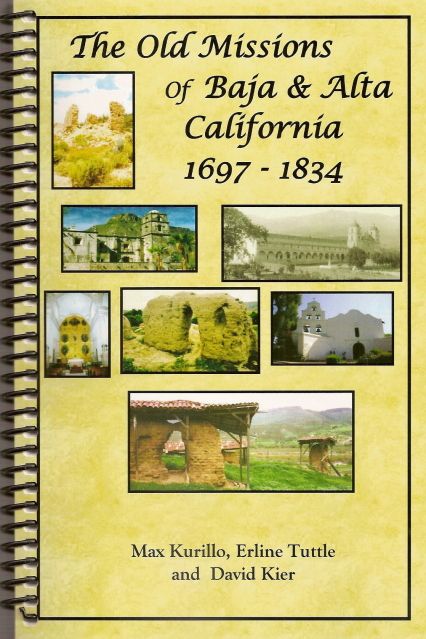
|
|
|
academicanarchist
Senior Nomad
  
Posts: 978
Registered: 9-7-2003
Member Is Offline
|
|
One source on Spanish American missions, that includes the Baja California Missions, is my book Missions and the Frontiers of Spanish America
published in 2005. Here is the Amazon link: http://www.amazon.com/Missions-Frontiers-Spanish-America-Soc...
http://books.google.com.mx/books/about/Missions_and_the_Fron...
http://www.unmpress.com/books.php?ID=11104110503250&Page...
http://www.h-net.org/reviews/showrev.php?id=11480
|
|
|
David K
Honored Nomad
        
Posts: 65453
Registered: 8-30-2002
Location: San Diego County
Member Is Offline
Mood: Have Baja Fever
|
|
Thank you for the links Robert... I must get this newer book you wrote to complement my 1994 book (you autographed to me)! Gracias...
I am currently writing a new article on the 17th California mission (Calamajué/Santa María). My poor copy of Engelhardt (1929) is falling apart after
so many page flippings! Dunne's Black Robes in Lower California (1968) is also suffering! LOL
|
|
|
academicanarchist
Senior Nomad
  
Posts: 978
Registered: 9-7-2003
Member Is Offline
|
|
The most important source for the Franciscan period and the transition to the Dominicans is a series of detailed inventories and censuses prepared
first by the Franciscans, and then by the Dominicans. They are in the AGN in Mexico City. I used the censuses in the demographic analysis of the
indigenous population living on the missions. There are microfilm copies in The Bancroft Library at my alma mater.
|
|
|
willardguy
Elite Nomad
     
Posts: 6451
Registered: 9-19-2009
Member Is Offline
|
|
David claims the franciscans failed in their attempt to colonize lower california largely because they arrived in JEEPS that just couldnt stand up to
the rigors of the terrain, where the dominicans arrived on the scene in their fancy new japanese models that could go virtually anywhere, and they
flourished.
any truth to this?
merry christmas david
|
|
|
David K
Honored Nomad
        
Posts: 65453
Registered: 8-30-2002
Location: San Diego County
Member Is Offline
Mood: Have Baja Fever
|
|
Ho ho ho.... Merry Christmas Willardguy. The Jeep arrived a hundred years too late for the last Baja missions. Mules horses and burros helped
however...
|
|
|
David K
Honored Nomad
        
Posts: 65453
Registered: 8-30-2002
Location: San Diego County
Member Is Offline
Mood: Have Baja Fever
|
|
Padre Fernando Consag Diaries
This entire book is available to read online...
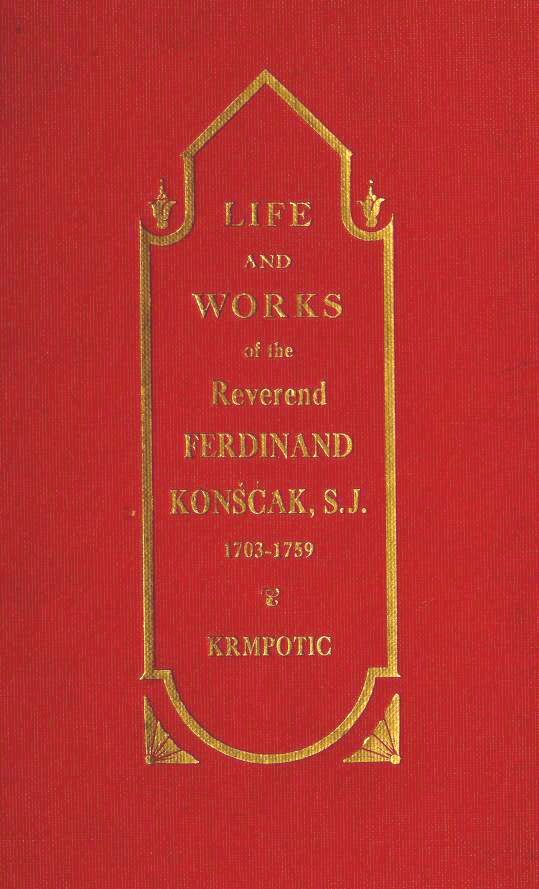
Reading the words from the missionaries before they get picked apart and retold is a big plus when searching for the past.
Consag was a missionary at San Ignacio and he was tasked for finding future mission locations. Consag was the padre in charge of Dolores del Norte, a
mission that only existed on paper, but to be founded north of San Ignacio. The best site in the area was an oasis Consag called La Piedad. He
explored north from San Ignacio's territory by sea and land in 1746, 1751 and 1753. In 1752 his La Piedad site became Mission Santa Gertrudis but
founded by Padre Retz. The name Gertrudis was requested by its benefactor, over the proposed 'Dolores del Norte'.
Here is the link to the book online:
Consag History Book
|
|
|
ncampion
Super Nomad
   
Posts: 1238
Registered: 4-15-2006
Location: Loreto
Member Is Offline
Mood: Retired and Loving it
|
|
David, do you believe there is a big pile of gold and jewels left hidden by the Jesuits when they got kicked out????
|
|
|
| Pages:
1
2
3
4 |

